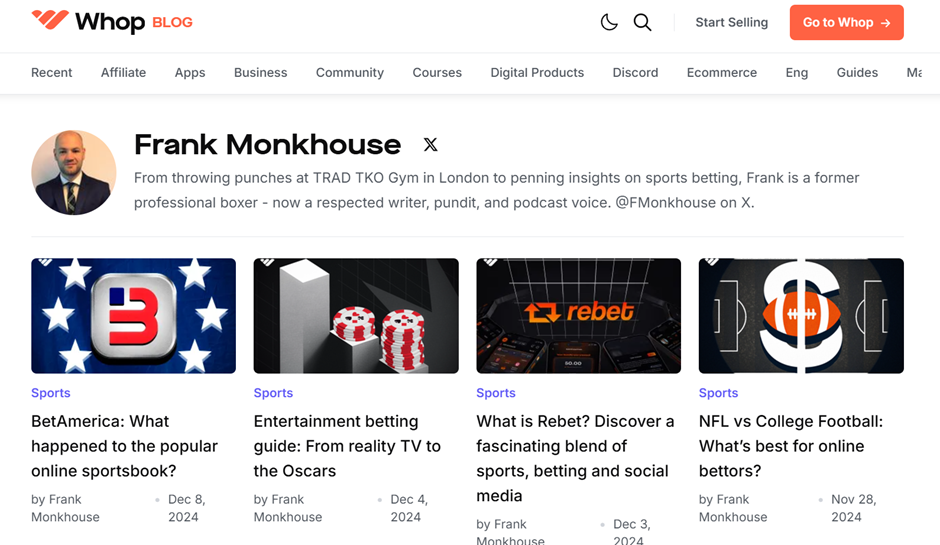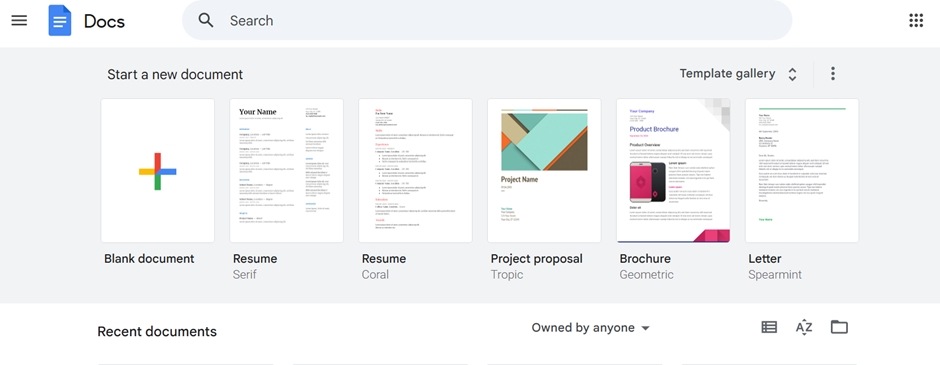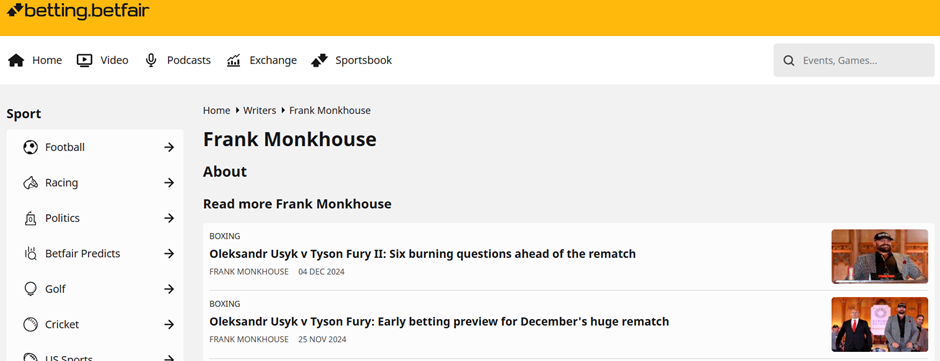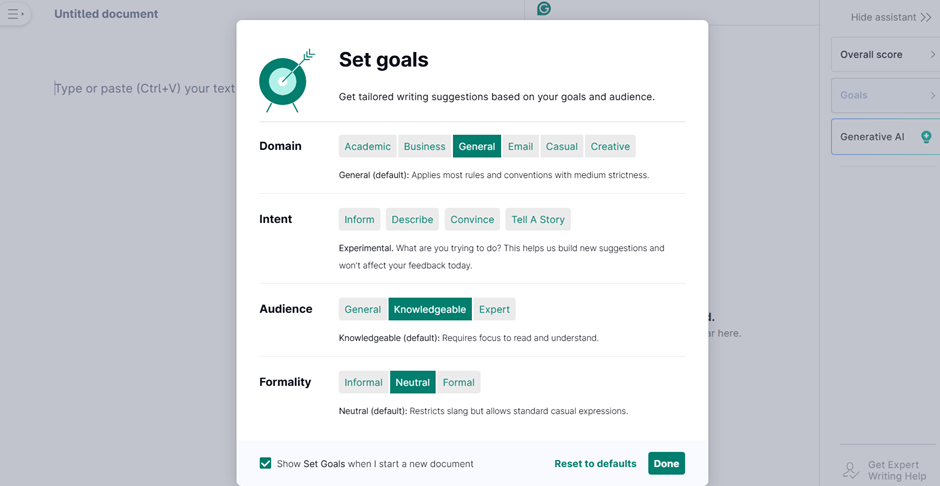Are you an avid sports fan? If so, then you could have a successful career as a sports writer. Learn what it takes and how to get started in this guide.
Key takeaways
- Finding a specific niche helps new sports writers stand out in a competitive market before branching into broader topics.
- Building an unpaid portfolio and online presence first demonstrates commitment and attracts paid opportunities from editors.
- Hard work and dedication matter more than natural talent or expensive equipment when breaking into sports writing.
Are you one of the world’s millions of sports fans? Do you love to follow sports of all descriptions from your seat at the stadium or on your sofa watching the play on television and the best live streaming apps?
Have you ever considered getting closer to the action and earning an additional income stream through sports?
Well, if you’ve always wanted to work in sports, Whop is here to help. Our content team has created an intriguing read explaining how you can go from a sports fan to a sports writer this year.
A career in sports writing is more accessible today than it has ever been in the past. So if you adore sports, are a talented writer, and have the dedication needed to carve out a new career, you’re already well on your way to becoming a paid writer.
Welcome Whop’s sports writer
Guiding you through the process of going from a sports fan to a sports writer is Whop’s very own Frank Monkhouse.
Frank, a former professional boxer, began writing sports previews and articles in 2010. Working at a major sportsbook in its London head office, he combined his talents for creating compelling content and picking winners, gathering a huge audience on his blog and social media.
Our man started writing as a hobby before creating a blog and earning extra cash. He progressed to a full-time freelance writer in 2016, and his work can be found on some huge sites and apps, including TalkSPORT, the Racing Post, and World Sports Network.
Frank continues to provide betting picks and advice to Whop readers. Still, he has experience working in many fields of sports writing, from breaking news to interviewing some of the leading names, including Frankie Dettori and David Haye.
How did Frank turn a love for sports into his dream job? This page has the answers to that question and more.
Is becoming a sports writer easy?
Is securing a job and a good living writing sports content realistic? You bet. Easy? Don’t make the mistake of thinking that.
You must be talented with a creative eye and a spark in your work. But I’ll tell you the truth: dedication and hard work are enough. In fact, like in professional sports, hard work beats talent every time.
To double your chances of becoming a sports writer, you should be a talented writer with a creative eye who is willing to work harder than the competition.

I spent a lot of years in professional boxing gyms, and since moving to writing, I’ve found that sports and sports writing share more similarities than I knew.
To succeed in either, you need to have an excellent work ethic, crazy focus, determination, and a real love for your chosen craft. You’ve got to love it enough that you’d do it for free if you didn’t have bills to pay. Think billionaire Forrest Gump when he’s cutting the grass for free.
How to become a sports writer without a degree
Writing has changed as newspapers have turned into websites and magazines have become apps. The days of journalism and writing being a closed shop are long gone. It has become an open market and there’s no need for the years of college.
In most cases, you need a degree to work in journalism, but that’s not true with online content creation. Anyone can create content and publish it on the web. Creating content that’s good enough to invoice for is another entirely different matter.
To recap:
Can you get into sports writing this year?
Yes, you can.
Do you need to be talented and hard-working?
Absolutely.
What do you need to get started?
Let's take a look!
Getting started as a sports writer
Before I do a deep dive into becoming a paid sports writer this year, I’m going to clarify that this is the process that worked for me, taking me from a sports fan to a sports writer. I began my journey over a decade ago, and website content writing was a very different game then.
For one, it was pre-COVID, and there were a lot fewer freelance writers around. Competition is much tougher today, but if you’re willing to take on the challenge, that shouldn’t matter much.
Technology moves fast, and editors change what they’re looking for from writers. You can follow my process exactly or find ways to update it and add your own spin.
What do you need to begin your journey to become a paid sports writer? We’ve covered talent and hard work. Chances are you wouldn’t still be reading this article if you didn’t have enough of both to get things moving in the right direction.
But what expensive technology is required, and how much cash is needed to invest in yourself? Should you save up or take a bank loan to get the best writing tech?

Getting your equipment
You’ll be delighted to learn that no expensive purchase is required, and getting into debt to pursue your new career is completely unnecessary. All you need are the basics for online writing: a decent laptop that’s powerful and fast enough to keep up with your demands.
Some writers, like me, require complete silence to concentrate and churn out sports content. I like to study the stats and give it my 100% concentration. Any little noise or activity can throw me off my stride. I know I’m a writing diva, but it works for me, and isolation helps me get the best out of my writing.
I’ve also met many writers who love working in a busy environment, such as an office, a cafe, or even a pub. There’s no right or wrong way, and you must find the conditions that are best for you.
Subscribing to writing tools
There’s a wealth of helpful writing tools available online, and many are free to use. It’s worth taking the time to find the tools that are best for you, but there’s nothing overly complicated here, and again, it pays to keep things simple.
Of all the online resources available to writers, I use Google Docs to write, save, and share my work. I also found it’s the preferred method for many editors who ask you to submit articles by emailing them a Google Docs link to your article.
I use Grammarly for writing, editing, and suggestions on how to improve. It’s a fantastic tool that edits your content and elevates it to a professional standard. You can set your tone of voice—more on that soon—audience, the aim of the article, and more. The program will then provide feedback and suggestions on how to improve by rewording, being more assertive, building confidence, and other useful tricks of the trade.
Grammarly is free to use, or you can subscribe to Grammarly Premium for a more professional service. That’s what I do, and it’s well worth the cost, which is, of course, a business expense.
Finding your niche
Now, there are mixed feelings about finding your niche in the content creation business. Some argue that it’s not a good idea and you shouldn’t force yourself into a box by choosing a niche. Surely, if you’re a great writer, you can cover just about any subject or area of sport.
I respect that point of view and wouldn’t encourage anyone to force themselves into a category, but that wasn’t my way of thinking when starting, and I’m still a supporter of finding a niche that sets you apart from the crowd.
I wanted to become a paid sports writer but didn’t fancy entering such a competitive market from a standing start. That’s why I drilled down and chose a niche that worked really well for me in the early days of my writing career.
As a sports writer and soccer fan, I could’ve joined the millions of Premier League writers and tried to get noticed. But that would’ve made life much more difficult than it needed to be.
Instead, I chose sport > boxing > betting as my niche. There are a lot fewer talented boxing writers than soccer content creators.

I then used my skills as a writer and passion for boxing to attract attention and prove my skills before gaining the respect of editors and branching out into other sports. Today, I write more soccer articles than boxing and am happy I can cover both.
How do you find your niche? Simply keep digging and researching until you find an almost untouched area.
If you love soccer, you can mix it with a long list of Premier League writers or focus on something like French Ligue 1, soccer betting, tactics, Saudi Arabia soccer, Major League Soccer, transfers, stats, or whatever catches your eye.
If American Football is more your thing, don’t start writing NFL previews and predictions, as everyone and their uncle already have a view on games. Find a unique angle and make it interesting through your flair for writing.
Developing your tone of voice
Starting out is the best time to find your preferred tone of voice (TOV). Which style suits you the best? Do you want to educate people and become a respected name in the field of sports writing?
You may wish to use a more formal and authoritative tone in your writing, or, you might prefer to meet your readers on the level, breaking down advanced topics into easy-to-understand articles.

Many writers overlook tone of voice in the early stages of sports content creation, thinking it’s not important or simply not understanding why it's useful. Please don’t do that. Decide on your tone and perfect it to give yourself a fighting chance of making it in the industry.
Getting experience as a sports writer
Now you have the tools and programs in place; it’s time to start writing. The best way to improve as a writer is to keep creating content. The best time to make mistakes is in the early days, so be brave and take risks.
Returning to my journey, I started by writing unpaid articles for a few sports sites, mostly boxing fansites. There are many websites and apps that would be willing to accept new writers on a voluntary basis. It’s unpaid, yes, but it’s a start, and it’s a golden opportunity to get your name known and your work read by a global audience. You want to make a footprint on the web, so it pays to get as much content online as you can.
I operated on a voluntary or unpaid basis for a while and was happy doing so. I tried new things, made mistakes, learned lessons, improved my writing, and took my first baby steps into online writing.
After writing for free and gathering an audience, I created a website, 'Fighting Tips', to begin creating paid content. It offered in-depth sports predictions and betting advice.
It was a great idea as it allowed me to write about subjects I loved the most, edit my work, practice adding images, and publishing. I also got the opportunity to edit the work of other writers and promote it on social media. I learned a lot from running a small site with a few other writers and used things like Google Ads, subscriptions, and affiliates to make it pay.
You can create a website or a blog today. Neither is complex, and you’ll find many affordable sites that allow you to secure a domain and work off their website creation tools. Check out these no-code website builders and the best blogging platforms for inspiration.
I don’t use the site anymore, but the affiliates still work away in the background and earn me a little extra income. Running the site earned me new readers and showed potential employers that I could write and fully commit to a project from researching to publishing and promoting an article. I could also then apply for jobs with a following.
If you approach an editor and say you’re a content writer and are looking for work, they’ve heard it all before. But if you say you’re a content writer with a large following on social media or your blog and are looking for work, I guarantee they’ll pay more attention to your application.
Create a writing portfolio
After ensuring I had a decent number of articles online at several sites, I created another website: Knockout-Content. This was more of a portfolio of all my work, allowing me to gather my best articles and share them with potential employers, on job sites, on social media, and with anyone who wanted to read my work.
I used the site to showcase my writing and for editors to contact me. They’d search online for sports writers, find my site, read my work, and message me through the contact form. I could then discuss their content needs, offer solutions, and agree on a price.

Interestingly, my site has brought me some of my biggest-name clients (like Racing Post), so it’s certainly well worth doing.
I’d advise all aspiring writers to create an online portfolio when they have enough work they are proud to promote on the site. But I would offer one piece of advice, and that’s to keep your portfolio updated. I am guilty of not always adding new articles to my pages.
Remember, the more you write, the better your content will be. So, you want to highlight your latest articles to show your work in the best possible light.
Promote yourself on socials
Learning from my past in boxing, I know the importance of promoting yourself and banging your own drum. Not everyone is great at self-promotion, but it’s something I believe you should work on and try to get perfect. I can guarantee one thing in writing: no one else is going to promote your work and skills, so it falls on you to get the job done if you want to get ahead of the competition.
Thankfully, technology has made it easier than ever to shout from the rooftops. When I was starting out, I posted regularly on social media, attracting eyes to my work, and I continue to do the same on Facebook, LinkedIn, and other platforms.

As I mentioned before, you’re creating a digital footprint and an online identity. The more mentions of you and your writing skills online, the better. I advise making full use of social media and using it as free advertising.
You never know who is watching.
How Whop has made life easier for content creators
Instead of creating a website and a secure payment link, promoting your articles, and uploading content on different platforms, you can rely on Whop.
With Whop you can create your own whop. Within your whop you can add examples articles for your portfolio, add the videos app to take calls with potential clients, use the links board for affiliate marketing, and sell services with your whop. It’s fast, secure, and super easy to manage. Visit Whop, click Start Selling, and begin earning from your passion for writing.
I’d strongly suggest you take advantage and save yourself time, money, and sleepless nights by creating a writing whop and selling your skills there.
Sports writing jobs: Finding paid work
Okay, let’s do a quick recap before moving to the best part of the article: seeking paid work as a content writer online.
If you’ve been paying close attention, you now know what you need to get things moving, how to build experience, how to promote your skills, and how to create a portfolio.
Where to find writing jobs
A great place to search searching for work is on job sites like Upwork and Indeed. Use the search bar and type in key works, like content writer, sports, and website. If the job site is worth using, it will then list all available vacancies, and you can contact employers with your CV and portfolio.
Another great way to find work is to sign up for newsletters. These resources search for jobs, gather the best, and drop them in your email inbox each week. It saves hours of searching, allowing you to apply for the vacancies that are most appealing to you.
LinkedIn is another great place for job seekers, and you can use the search bar to find your perfect job.

Then there’s the topic of ‘cold calling,’ which divides opinion among writers. It involves emailing or telephoning editors and offering your services. Some think it’s annoying, makes you look pushy/desperate, and often results in your message being ignored. I have no issues whatsoever with cold calling, but you must do it right.
Reaching out to editors
I like to email the sub-editor or someone near the top with weight in the company that sits below the editor. I always figure the editor of a site I’d like to work with is busy enough and may ignore my message or push it to the bottom of their to-do list. Messaging someone down the pecking order often brings better results.
Here are a couple of rules for reaching out to editors:
- Don’t be a pest when cold calling, and keep things brief. Introduce yourself, explain what you offer, share a link to your portfolio, and cover your rates. It’s then up to them to get back to you and not.
- I can’t stress this enough: when emailing someone in charge of hiring writers, be polite and show some personality. That may sound obvious or even rude, but you’d be shocked by how many cold call emails I’ve seen that either waffle on or have a sense of entitlement. Remember, regardless of your writing skills, you want to be reliable, polite, and eager to impress.
A few of my big clients from the online gambling sector came through cold calling, showing my content and offering to provide work. You’ll earn bonus points from the editor if you go through the website and find an area that’s empty or could be improved. You then tell them how you’ll improve that section of the site and what it will cost.
How much to charge as a sports writer
What to charge for content is a contentious subject that isn’t discussed enough, meaning new writers either undersell themselves or charge too much and price themselves out of work. Unfortunately, there’s no accepted norm for freelance writing rates.
Different sites pay different rates, and one industry may pay better than another. During my years of writing, I’ve found the ballpark figure for online sports writers is as low as 0.5 per word and as high as 0.50 per word.
I always charge by the word as I can turn around good articles quickly, and the hourly rate doesn’t suit my style. You may be different.
You can charge by word, hour, or project. That’s something to discuss with employers when applying for work.
Have a rate you’re comfortable with and think is fair, but always be open to moving to match the editor’s budget as best you can. You’ll eventually find that ‘sweet spot.’
Improving your writing skills
By this stage, you should have a list of freelance employers, or perhaps you’re working for a company in-house on a full-time contract.
Regardless of how you choose to work, you must continue to improve. Never stand still and always retain that hunger you had in the early days.
Many writers get into a good position and then settle down. That’s a mistake. If you want to be the best, make as much income as possible, and build a personal brand, you can’t take your foot off the gas.
Whop has a huge number of resources to help you improve your skills. Check out the Whop Discover page and take a look at the online courses and communities there dedicated to business and marketing. Here you will find groups to help you with SEO, courses to level-up your copywriting skills, and mentors to guide you to create a thriving business.
Launch your writing career with Whop
We’re now at the conclusion of my article on how to become a paid sports writer. We've covered everything from finding a niche, to the importance of selling yourself, using social media, creating a portfolio, and the tried-and-tested methods of finding paid writing work.
Let’s return to Whop before wrapping things up. There are three ways in which Whop can help you become a successful sports writer.
First, you can browse Whop's Discover page for useful writing tools and advice. You’ll also find expert information on how to sell, make money, and other hot topics.
Then, once you're ready to start writing, you can create your own whop. Use your whop as a hub for your clients where you can share your work, discuss your rates, host video calls and sell your services.
Once you are an established name in online content creation, Whop also offers another income stream, and it’s easy to set up. Create a whop for writers and share your experiences. You can educate followers on the best places to find work, common writing mistakes to avoid, the best free AI tools, or anything you think writers would love to read. You can even preview NFL games and offer your betting picks. You can sell your expertise through online courses, mentorship, ebooks, and more.
Wherever you are in your journey, Whop is here to help.
Sports writing FAQs
Is it too late to become an online content writer?
Certainly not. In fact, there has never been a better time to begin your writing journey. You can get started today and will find advice and guidance at Whop.
Is sports writing easy?
Many people seem to think creating content is easy, but there’s much more work involved than meets the eye. Use the tools available at Whop to make things manageable.
Should you start by writing unpaid?
You can, and it was almost essential when I started writing online content in 2010, but things have changed. Places like Whop have helped to create a fairer market where writers of all levels can make money.
What do I need to begin writing?
You can go all-out and purchase the latest tech and best writing tools, but it’s unnecessary. I started with my laptop and Wi-Fi connection. Today, I use Grammarly and Google Docs to help improve my writing and organize my work.
What if I didn’t attend college?
The lack of a degree or college education is no longer a stumbling block for writers. I ended my studies early to start creating content and earning money. Hard work and a talent for writing is enough to begin.



